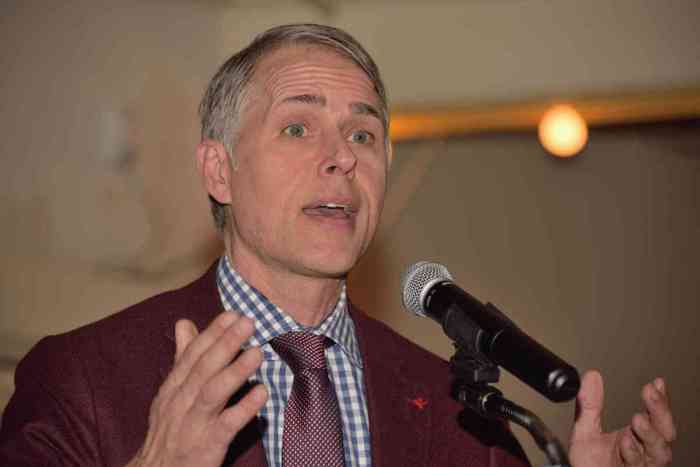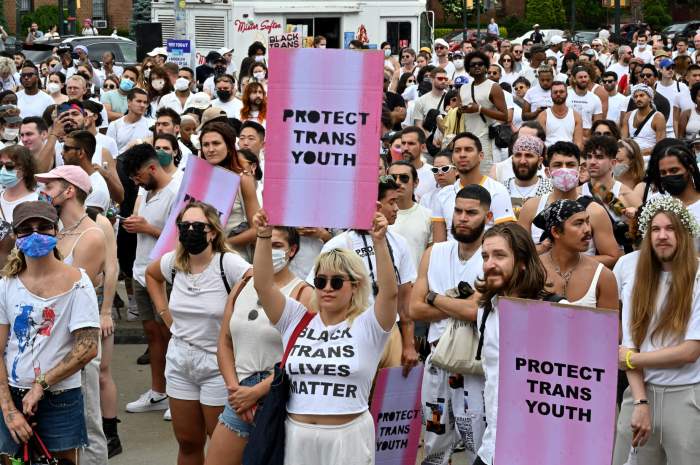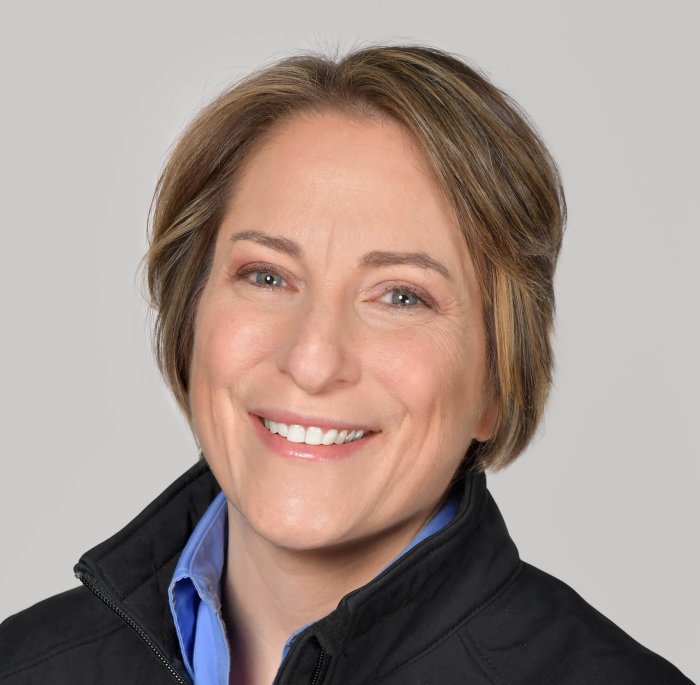Melvin Dwork, 90, is now getting his discharge from the Navy during World War II upgraded to “honorable.” | SLDN.ORG
As the one-year anniversary of Don’t Ask, Don’t Tell (DADT) repeal approaches, we have a great deal to celebrate. Since September 20, 2011, gay, lesbian, and bisexual men and women have been serving in the Armed Forces without fear of being discharged for who they are or who they love. But though the military has implemented open service, discharges that took place under DADT and the prior ban on gay and lesbian service continue to impact the lives of veterans who served under those previous policies.
At Servicemembers Legal Defense Network (SLDN), I hear their stories. Older veterans, discharged during the 1940s, ‘50s, and ‘60s, call seeking help after being discharged for “unfitness” or “unsuitability” and receiving “undesirable” or “other than honorable” discharge characterizations based purely on sexual orientation. Some look to change their discharges to set right a personal injustice or to ensure that the blot on their honor does not live on even after they have passed. Others call when they learn that, in spite of the fact that the regulations under which they were discharged were repealed years ago, they are still prevented from obtaining badly needed medical attention from the Veterans Administration (VA) because of their negative discharge characterizations. Many younger veterans, discharged under DADT, call because they received “general” discharge characterizations when their service merited “honorable” characterizations; as a result, they cannot use their GI Bill and are unable to pay for college.
I’ve talked with unemployed veterans who describe being rejected for jobs after they submit their discharge documents. Some veterans are told directly by their would-be employers that the reentry code or discharge characterization makes hiring them impossible as a matter of that organization’s policy, because the characterization or reentry code they received is associated with misconduct or poor service. In other cases, veterans read between the lines when they notice a drop in an employer’s enthusiasm after seeing the discharge document. They suspect that having a narrative reason for separation that includes phrases like “homosexual act” or “homosexual admission” gives potential employers an unspoken reason to reject them. Even in the absence of perceived discrimination, many people simply object to a separation document labeling them in this way.
Fortunately, there is a remedy. Each branch of the Armed Forces maintains review boards that consider requests for changes to the discharge records of veterans. In the past, those discharged on the basis of sexual orientation were able to upgrade their discharge characterizations in limited circumstances, but other aspects of their records would remain unchanged. Since DADT’s repeal, the Department of Defense has issued guidance that offers qualifying veterans broader standards for upgrading their discharge characterizations to “honorable.” In addition, veterans may change their reentry codes to favorable classifications and replace their narrative reasons for separation with sexual-orientation-neutral phrases. Those who qualify can apply for these changes even if they attempted to upgrade their records before the repeal and were rejected. At SLDN, we provide free and direct legal services to help veterans make these changes to their records, and thereby overcome the barriers and personal indignities that their separation documents have created for them in civilian life.
Melvin Dwork during his World War II Navy service.
When we gather in New York City on September 18 to celebrate the one-year anniversary of repeal, we will pay tribute to one such veteran –– Melvin Dwork. Mr. Dwork, now 90 years old, was discharged during World War II and only last year, with SLDN’s help, was he able to right a decades-old wrong; he is set to receive a retroactive upgrade of his discharge to “honorable.” With it, he will be able to qualify for much-needed VA benefits. It’s for him –– and the countless others like him –– that we must continue to fight until the mission is complete. And proceeds from the September 18 event will go, in part, to doing just that.
If you are a veteran interested in upgrading your discharge paperwork pursuant to the repeal of Don’t Ask, Don’t Tell, contact SLDN at 202-328-3244 or visit sldn.org to learn more and set up a free legal consultation. To attend the event in New York City to support these efforts, visit sldn.org/intrepid2012.
Kulsoom Naqvi is a staff attorney at Servicemembers Legal Defense Network (sldn.org).



































